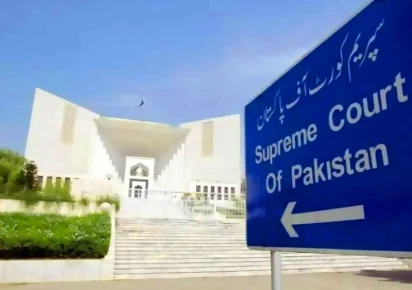ISLAMABAD: A five-member Constitutional Bench of the Supreme Court, led by Justice Aminuddin Khan, resumed hearings on the controversial super tax on Thursday.
Farogh Naseem, counsel for multiple taxpayer companies, argued that the tax disproportionately burdened industries, particularly the banking sector, where the overall rate has climbed to 53 per cent with the inclusion of the 10 per cent super tax. He added that several businesses had shifted operations abroad, including to African countries, due to Pakistan’s heavy taxation regime.
The bench questioned the status of related cases in other high courts. Naseem confirmed that while the Sindh High Court had dismissed the petition, proceedings were still pending before the Islamabad and Lahore High Courts.
Justice Aminuddin Khan raised concerns over the absence of think tanks in the country to guide economic and taxation policy, while Justice Jamal Mandokhail stressed the primacy of Parliament in framing the Constitution. Naseem countered that though the Constitution holds supreme authority, parliaments worldwide exercise significant power over fiscal frameworks.
The discussion also touched on ambiguities in Section 4C of the Income Tax Act. Justice Muhammad Ali Mazhar observed that the provision lacked clarity on additional taxation, noting that “if additional tax had been explicitly stated, you wouldn’t have had a problem.” Naseem agreed, acknowledging that clearer drafting could have avoided litigation.
The bench further heard Naseem’s criticism of government briefings, which he claimed had misled top policymakers. He urged the court to provide relief to taxpayers, warning that otherwise “the victim will be the economy itself.”
The hearing will continue, as the bench deliberates on the legal, constitutional, and economic dimensions of the super tax and its impact across sectors.


